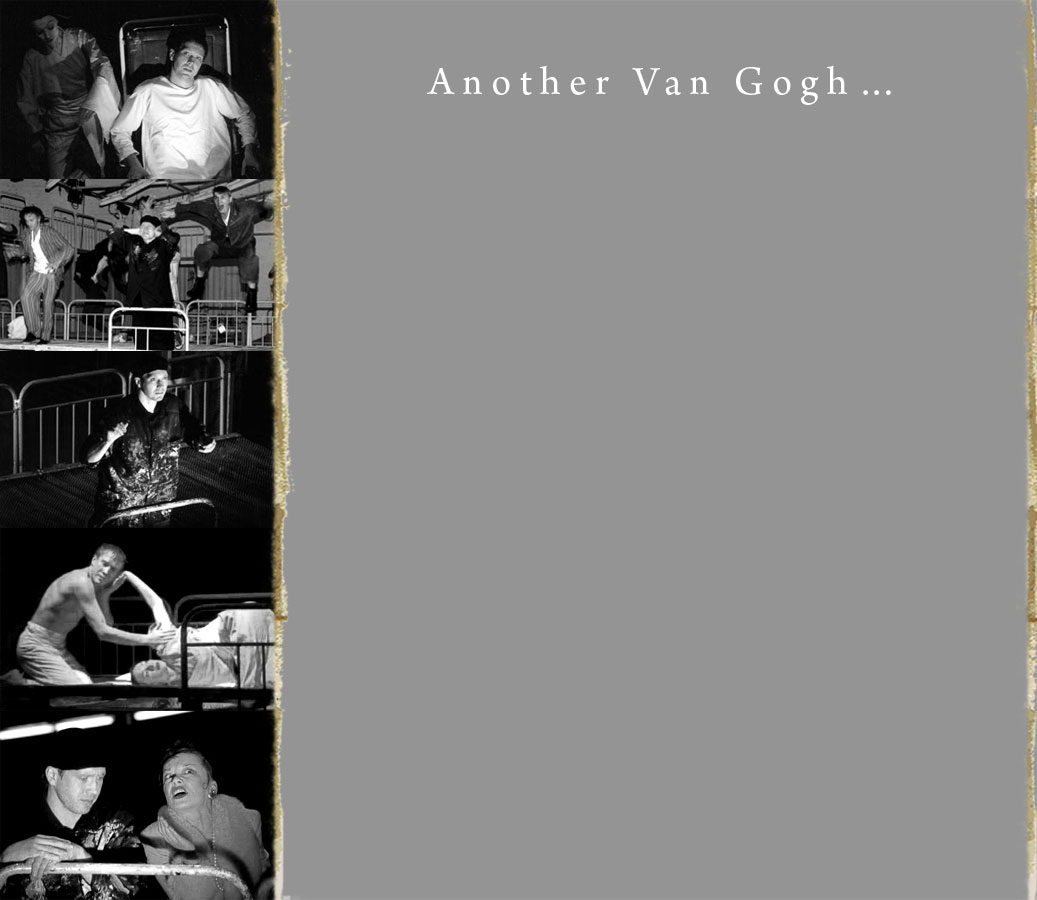A Case History in One ActA Joint Project of the
Oleg Tabakov Theater and the Meyerhold Creative Center
Opened on January 20, 1998
Concept, composition and direction by
Valery FokinDeveloped for the stage by
Valery Fokin, Aleksandr Bakshi and Ivan SavelievMusic by
Aleksandr BakshiChoreographed by
Nikolai Androsov
Appeared as
Sasha The genre of Fokin's production is described as a case history. There was no play as such: the idea and the mise en scenes were developed by the director with the composer Aleksandr Bakshi, the dialogues written by the young playwright Ivan Saveliev. Yevgeny Mironov had the lead.
The audience was presented with a room in a mental clinic and a picture of reality as perceived by the troubled mind of an artist who may be mad – or a genius. The world of artists was seen by the creative team as a world of various psychological anomalies. The team's objective was as challenging as it was intriguing: to contemplate on the nature of creativity using unorthodox stage techniques. To cite Fokin, "I thought of people that weren't entirely "healthy" in the accepted view, yet recognized as geniuses: Vrubel, Fedotov, ... Van Gogh. And, always – Dostoyevsky. ... Who'd be better off if those artists had been normal? ... Their illness caused them great suffering, but realizing itself through art, it brought about ... amazing results. So the appropriate question here is – should they be treated?" Fokin's theatrical experiments in the field prevail upon his audience to conclude that The Artist should not be cured.
Designer Aleksandr Borovsky transformed the stage into a gloomy cage with walls made of steel bed frames. Contorted human shapes hung off them – sometimes in silence, sometimes screaming out meaningless words: "Ultramarine!", "Stress pills!" The action mixed the tormented frenzy of the ill with the mercantile interests of the healthy, the graceful dance of the former with the sure predatory step of the latter... At a certain point, the theme of "the Artist, his surroundings and the base metal" upstaged all others. The short production extensively dwelled on the ugliness of earthly illness, somewhat less so – on the loftiness of talent and art.
(No longer in repertory)

